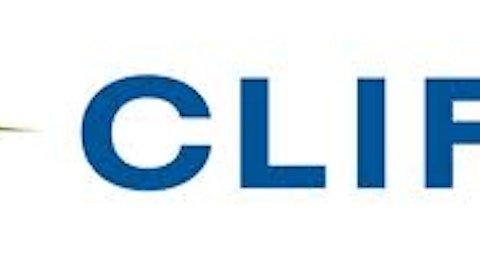Drug Dealers, of all shapes and sizes, prey on the weak and the needy. But before they can sink their claws into their cash cows, they need a drug and an addict. They need that addictive thrill and thrill seeker to exploit.
I believe the financial media in this country has turned into a Drug Dealer, they’re giving you a short-term thrill and ruining your (financial) health in the process. Here’s why, and what you can do about it.
Like a Drug Dealer, the financial media has you trapped in a vicious, destructive, cycle
There’s a dangerous cycle that starts the moment investors tune in to financial network “news” and watching their investments too closely, it goes like this.
1. We tune in to CNBC (or Fox Business, etc.) way too frequently, which makes us track the short-term performance of our stocks too frequently
2. As stocks gyrate up and down the financial media looks for reasons to explain why, when often there are none. We can’t get enough of this. We let these “stories” and headlines evoke fear and greed inside us.
3. We then proceed to buy (high) and sell (low) at the absolute worst time, because that’s what the TV is telling us to do. The “Experts” also start to convince us that we can miss every correction and cash in on every rally by chasing technicals and trading frequently.
4. Then, we the individual investors proceed to underperform the market by more than 7%.
The numbers back it up, over the past twenty years; the market has gained in excess of 10% per year while individual investors have earned a meager 3%. And it’s all because we gave in to mankind’s oldest addiction: trying to predict the future and rationalize the past.
Like a Drug Dealer the financial media tries to make your risky behavior seem acceptable
So much has been made of diversification in recent years. The financial media tells you that you’ll achieve safety through buying many “safe stocks.” I don’t see it that way.
The truth is a “dividend stock” or a “safe stock” is a stock that has little or no upside, while still having the same risk all individual stocks have—it can go out of business. Owning many companies that fit this bill isn’t safe. I understand the merits of diversification, but why, in the age of ETF’s is anyone still looking for diversification through buying individual stocks which carry unlimited risks?
The Rehab Portfolio
Ok fellow Fool, to get clean the first step we need to take is at least matching the market averages. I truly believe that the individual investor loses to the market because they get spooked (thanks to headlines) into selling they’re stocks at the absolute worst time. So why not commit half of your funds to well diversified ETF’s or Index funds that will match the markets return?
The reason is simple; an Index isn’t going to go bankrupt (barring an asteroid or alien invasion) so you can contribute to it each month without selling. I prefer Vanguard MSCI Emerging Markets ETF (NYSEARCA:VWO)’s because their fees are miniscule; here are a few you should consider.
Why not consider Vanguard Dividend Appreciation ETF (NYSEARCA:VIG), which has a 2.17% yield, and only a .13% expense ratio? If you’re interested in having diversification and dividend exposure, this is a great place to be. The fund holds business like Wal-Mart Stores, Inc. (NYSE:WMT), The Coca-Cola Company (NYSE:KO), The Procter & Gamble Company (NYSE:PG), and more with good dividends and growth prospects to increase them even more.

Want even more safety and diversification? Well, Vanguard FTSE Emerging Markets ETF can get you the international exposure needed for a truly diversified portfolio. The fund invests in companies like China Mobile Ltd. (ADR) (NYSE:CHL), Samsung, Taiwan Semiconductor Mfg. Co. Ltd. (ADR) (NYSE:TSM) but you’ll skip the risk of investing in individual firms in companies whose rules you’re unfamiliar with. The fund offer a 2.4% yield with only a .18% expense ratio.
And to offer some upside with your diversification, I’d recommend Vanguard Small-Cap ETF (NYSEARCA:VB) the fund has an expense ratio of just 0.10% and tremendous upside. It’s bounced between a 52-week range of $69.43 – $91.72, a 42% variance. The fund owns small, cyclical, stocks so if you’re buying into it consistently you know that you’ll catch some of that upside—but again—it won’t go down to zero, so you shouldn’t get spooked out of it.

